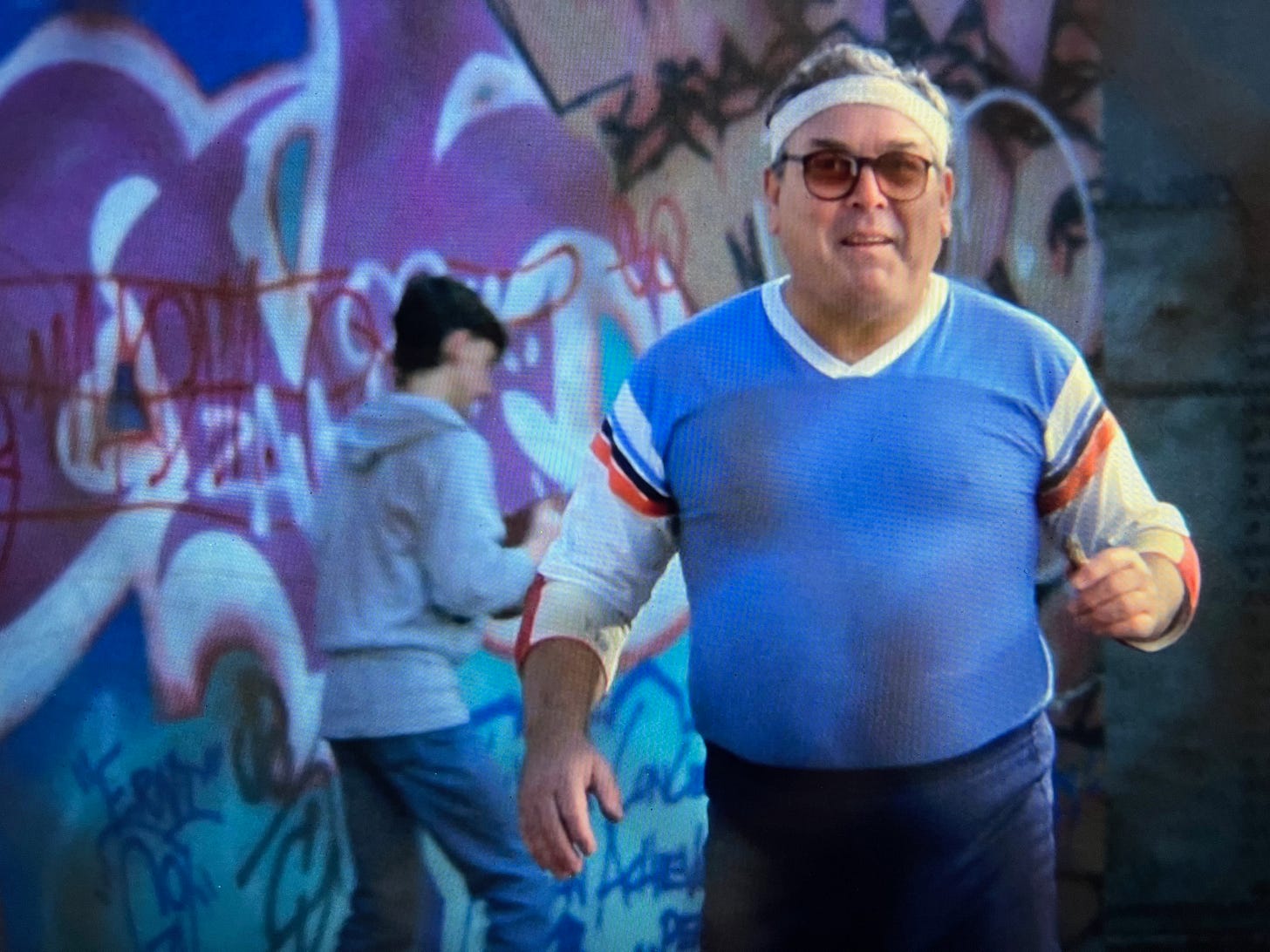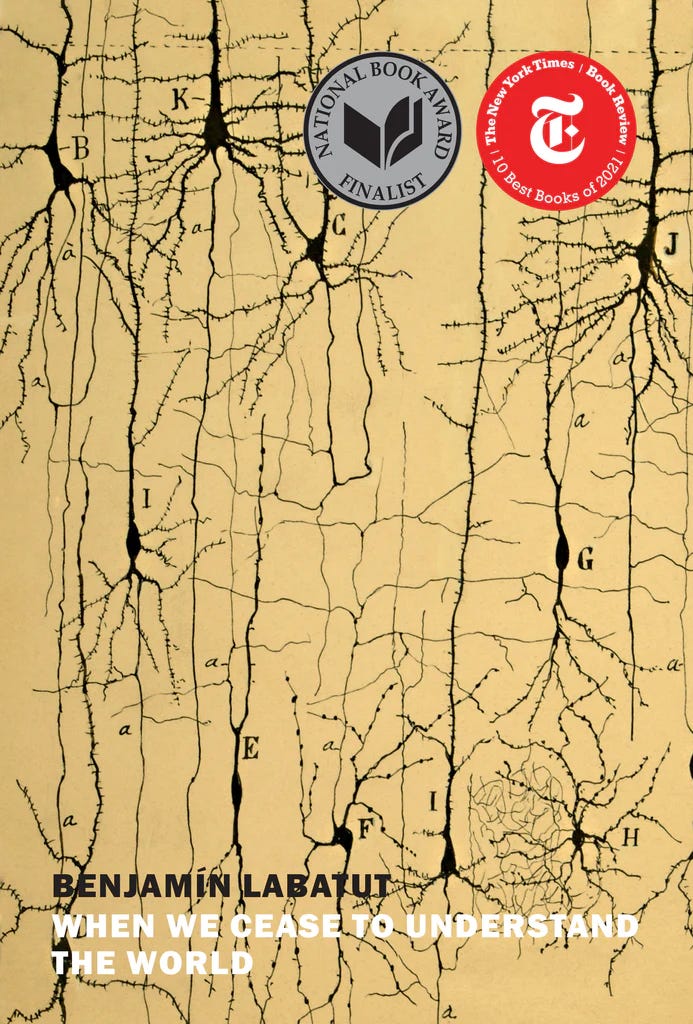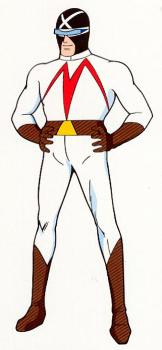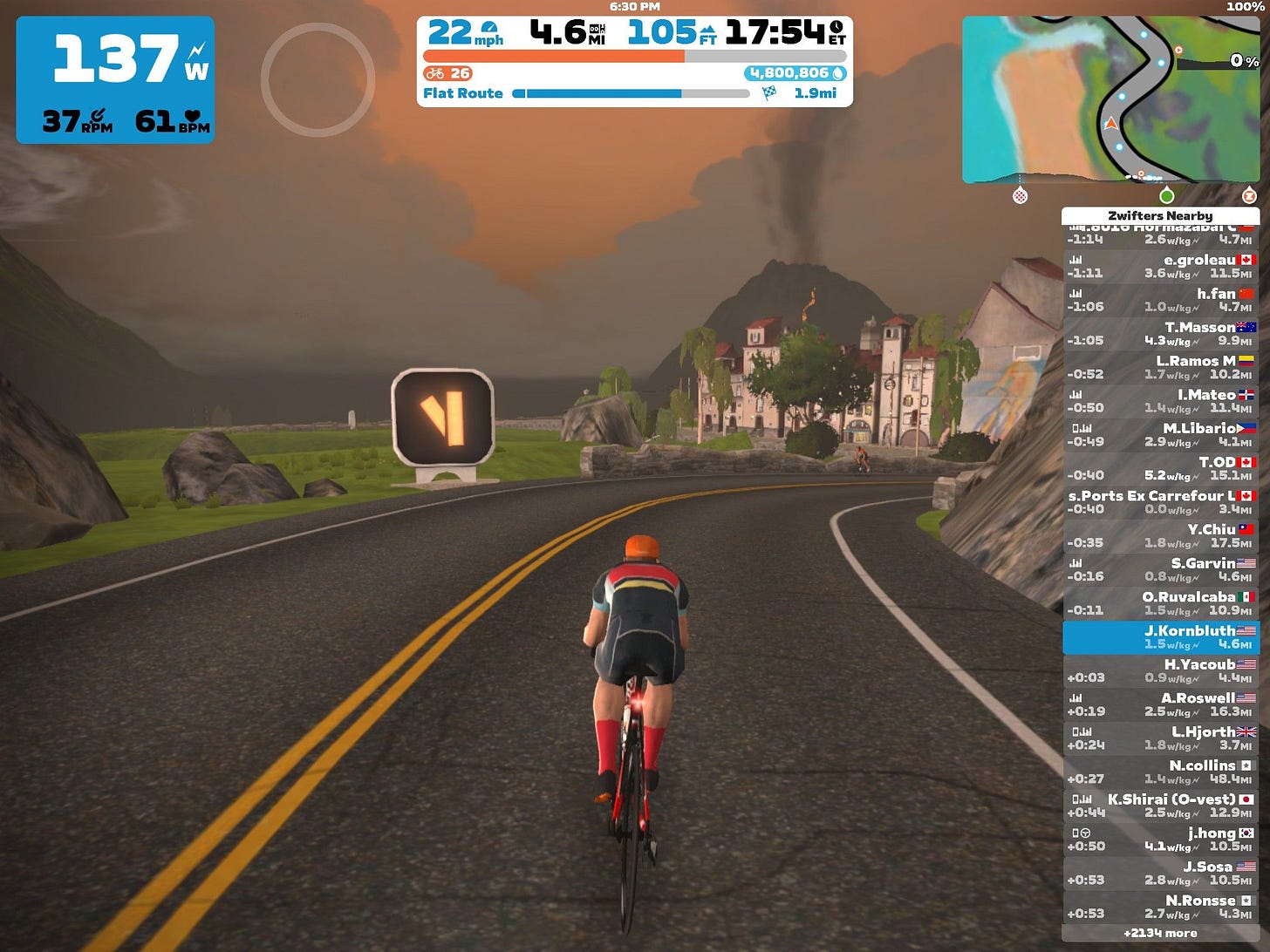"All The Senses Are Tactile"
Remembering Marv Stern ... & Other Stories
Marv, who taught me a lot
One day, in my younger years, my father’s friend Marv Stern, shortly after arriving in our apartment for one of his frequent visits, announced to my dad, with great excitement: “Paul, I have given this matter a great deal of thought — and I’ve decided that all the senses are tactile!” He went on to explain how, each time we sensed anything, that meant something had literally touched a part of us.
Marv was given to pronouncements. Also, denouncements: he was forever critiquing the views of lesser thinkers — a category that seemed to include most human beings. (Years later, when I was working at Naropa Institute — now Naropa University — one summer during college, William S. Burroughs gave a talk that began, “The problem with this world is that 90 percent of the people in it are assholes.” I don’t know if Burroughs ever met Marv Stern — but if so, I bet they’d have agreed on this point, though Marv may have pushed for a higher percentage.) Marv was also immensely charming: it was always entertaining to be in his presence. And, in his own way, he was also hugely generous — especially when it came to preparing young me for the world I would eventually face as an adult. Dad’s friends, though they loved him dearly, tended to feel that there were shortcomings in how he was raising me — and that they needed to say something about it. Sam Vogel, for example, would yell at me: “Your father loves you too much!”
But back to Marv. To say he was a man of contradictions would be an understatement. An outspoken anti-Zionist, he raised millions of dollars for Israeli War Bonds by charming wealthy Jews while playing handball with them. He was the nutrition columnist for the newspaper of the Progressive Labor Party (a political organization that catered to those who found the Communist Party too wishy-washy), advising his radical readers to stick to fruits and vegetables and such; and yet he frequently treated both of us to éclairs and other pastries at various eateries. He was passionate about bookselling — for years he presided at Retriever Books, his own little shop on the Upper West Side of Manhattan — and yet, in refusing to put his book collection in any sort of order on the shelves, and moreover in being quick to judge potential customers as being unworthy of purchasing any of his fare, he ended up selling very few books. I think he wanted to keep them, anyway — and besides, he could get along pretty well on what he made by occasionally fundraising for Israel.
I’d visit him at Retriever Books whenever I could. I recall him usually sitting behind a messy little desk at the back of the store. He’d regale me with stories from his life. As a kid in Brooklyn, he’d been an ardent anti-Communist, given to throwing eggs at Commies whenever he encountered them. Then he became a Commie, and redirected his egg-throwing at fascists. He’d been an excellent gymnast at Brooklyn Tech, showing off for the girls by doing headstands on the edges of rooftops. Even now, he was, like my father, a powerfully built man, with strong legs and (like Dad) a potbelly seemingly made of concrete. Both men also had hands of stone — achieved through a lifetime of playing handball. The O.G. handball players from Brooklyn and the Bronx, like Marv and Paul, had come up playing with real, honest-to-God handballs — super-dense black rubber things that felt like tiny cannonballs. No squishy pink Spaldings for them! Marv would frequently take breaks from not selling books to bring me to one of his favorite refuges, the Businessmen’s Club at the West Side YMCA on West 63rd Street. Another Marv-ian contradiction: he mostly disdained the regular Y upstairs — that was for the lumpen. An extra fee got him into the exclusive club in the Y’s basement. There, he would take me for a shvitz — insisting that I had to intersperse our sessions in the steam room with the taking of ice-cold showers. (And who was I to reject the health advice of the nutrition columnist for the PLP?)
It was a shock, many years later, to see Marv playing handball in a totally unexpected context. I was in my late 20s, living in San Francisco and dreaming of breaking into showbiz while suffering through open mikes at places like the Holy City Zoo, where I’d get to try out my five-minute set at 2 a.m., in front of three drunken patrons and a bar manager so bored she’d literally turn her back to the stage. I went to see a movie that had recently opened, Crossing Delancey, starring Amy Irving and Peter Riegert. (This is, by the way, possibly the most Jewish movie I’ve ever seen: it makes Jackie Mason look like Jackie Kennedy.) About halfway through the film, Peter Riegert’s character is shown playing handball against a middle-aged guy with a big potbelly, wearing a headband and smoking a cigar. There was a close-up of the guy — and it was Marv Stern! I couldn’t believe it! Marv had never expressed an interest in acting, and here he was with a speaking part! (“Hey Sam,” he says to Riegert’s character, having noticed Amy Irving’s character waiting to talk to him, “you have a visitor.” Later he playfully admonishes Riegert, “What, are you showing off?”) At the end of the movie, I was looking forward to seeing Marv’s name in the credits — only to find “Handball Champ” credited to one “Sam Corsi.” Marv later explained to me that, on account of some tax issues he was having, he’d decided to go with a fake name. (I think that was the full extent of Marv’s/Sam’s film-acting career.)
One of my favorite Marv Stern stories was how he described attending a concert that included a composition by John Cage. As Marv described it, each of the musicians on stage was seated in front of a transistor radio. At a signal from the conductor, all of them turned on their radios and began randomly tuning to various stations. Marv became so apoplectic at this shameful display of bourgeois decadence that finally he stood up (from wherever he was seated in the auditorium) and yelled, “This is bullshit!!!” As Marv related this experience, it was clear that he considered his act to be one of revolutionary rebellion, a takedown of crappy faux art. But I like to imagine that John Cage himself was in attendance at that concert (maybe he was even the conductor?), and that Cage was absolutely elated at Marv’s reaction. Marv Stern was a rebel who couldn’t help but spread delight.
Reading …
One of the greatest benefits of being Marv Stern’s protégé was that he took enormous care — and pride — in recommending titles to me. Frequently these would be books, or authors, I’d never heard of. We’d be deep in conversation at Retriever Books, and suddenly he’d reach up to one of those disorganized shelves and pull down a volume with a faded cover. This, he’d determined, was the one that I needed to read right now. And he was always right! Every single book that he recommended to me changed my life.
That’s how I feel about recommending this book to you: When We Cease to Understand the World, by the Chilean author Benjamín Labatut, who describes it as “a work of fiction based on real events.” The haunting first chapter, “Prussian Blue,” connects Nazism, pigment-making, poison, and music in an intoxicating (and often toxic) way. I gave this book to a dear friend, and after reading that chapter she had to put the book down for a while: it was too intense. A running theme throughout the text is an exploration of whether scientists who get close to forming a comprehensive understanding of the universe might find themselves with a choice between going mad or abandoning their quest. It’s been a while since I careened through this book, but I’m still feeling it.
Nemesis
Lots of folks have a nemesis. In the old “Speed Racer” cartoon series I loved as a kid, the eponymous hero’s nemesis was “Racer X.” (Spoiler alert: He turned out to be Speed’s older brother.)
On The Simpsons, baby Maggie’s nemesis is an infant named Gerald, who has an imposing unibrow.
As for me, my nemesis is Zwift Josh.
You can see him in the picture just above — and this is how I almost always see him as well: just ahead of me. It’s infuriating!
I have one of my bikes set up in a digital trainer thingie, which turns it into a stationary bike. A while ago a guy at the local bike shop told me about this app called Zwift. For a subscription fee, you can ride your stationary bike through any number of virtual environments — some based on real places, others totally fictional: in the above depiction, we are in the made-up land of “Watopia.” The app works with my digital trainer to make it feel like I’m really going uphill when my avatar is doing so on the screen; and so on. After a long-ish break from Zwifting, I recently returned to Watopia — and found that they’d added a new feature: On the periodic sprinting segment, where you try to go all-out, you find yourself going up against the fastest previous version of you. And here’s the thing: each day, I’m getting older, and my legs are getting tireder. And that previous me keeps leaving me in the dust! What can I do? I shake my fist at Zwift Josh, I hurl imprecations, but does he even bother to look back at me? Not a chance. I can only hope that one day Watopia takes us both to a dead end, and he has to stop and face me — at which point, I will finally give that haughty youngster a piece of my mind.
Up in the sky …
Sara says, “At first I was going to throw out this photo. It was all blurry, and backlit. But there was something playful about the image, goofy and sweet — and I’m convinced that pelicans do have a sense of humor! We’ve seen them play games, like ‘Pass the Feather,’ and ‘Pass the Stick,’ and ‘Hey — Who Goosed Me?’”
Head case
I keep getting these junk emails from a store that makes hats for extremely large heads. I never asked to get on this list, but I can understand how they found me. I have a really big head. All Kornbluths have really big heads. When we go to the ballpark and see caps that claim to be “one size fits all,” we laugh a bitter laugh. When Sara was pregnant, we were at a meeting for couples who were expecting and the doctor asked if anyone had any questions. Sara stood up, pointed at me and said, “Would you look at the size of this man’s head! I have concerns” and sat back down. You could feel a lot of empathy in that room.












My mother would go to Saks Fifth Avenue in Chicago in the late 1940's each fall to order my snow suit, always getting the hood 1 size larger than the suit. This was a time when the salesladies knew all their regular customers, had been there forever, and wore white gloves. Finally one year when she presented her order of a size 6 blue snowsuit with a size 7 hood, the ladies pushed out one of their colleagues who inquired of Mum: "Mrs. Armour, would it be possible for us to see the child?"
Labatut’s book was my absolute favorite book last year. Yes, it’s an intense reading, but simply fascinating.